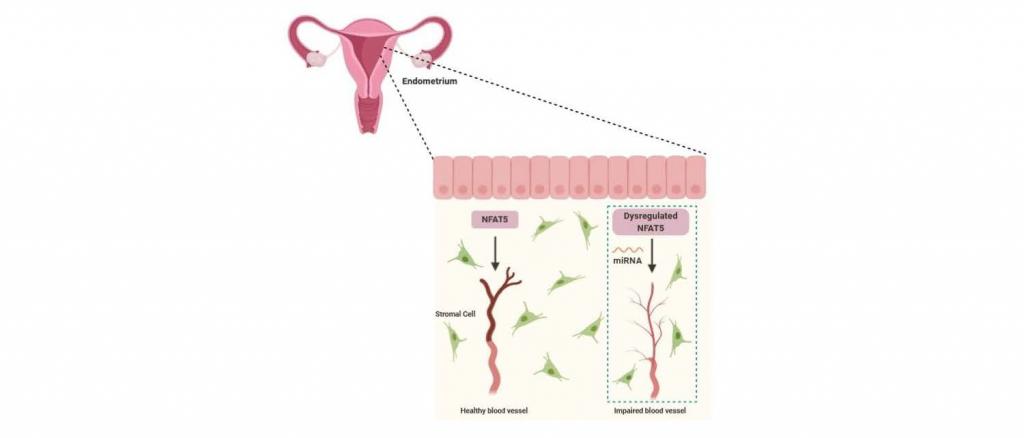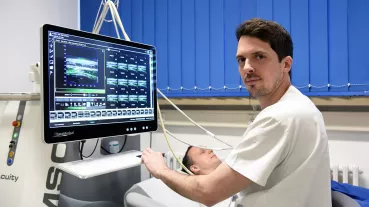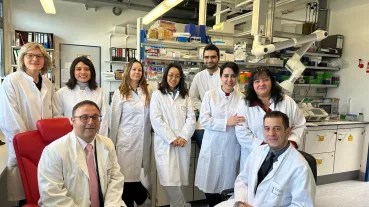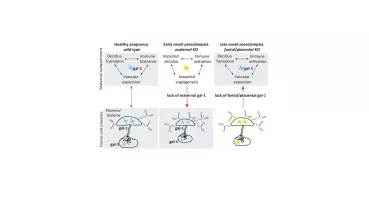Role of NFAT5 & impaired endometrial blood vessel development.

Incorrect or poor blood vessel development in the womb lining (endometrium) can lead to a variety of complications including causing miscarriage. Further, it can also lead to growth restriction (IUGR) or pre-eclampsia (PE) during pregnancy. These (latter) conditions remain the leading cause of pre-term birth.
In Germany, 8.7 % of babies are born early -one of the highest rates recorded in Europe. Despite significant research efforts, there has been only modest progress in revealing the mechanisms that lead to these pathologies. Therefore, the development of new strategies that overcome reproductive failure and improve pregnancy outcome requires in-depth understanding of key uterine regulators that control these events.
In this proposal we will (1) define the paracrine effects that control NFAT5 expression; (2) examine the contributions of miRNAs in the regulation of blood vessel development; (3) unravel the perturbed signalling pathways that lead to impaired angiogenesis. The proposed study would shed new light on the origins of pregnancy complications, which will lead to new opportunities for future treatment.
Here you can get furher information.







